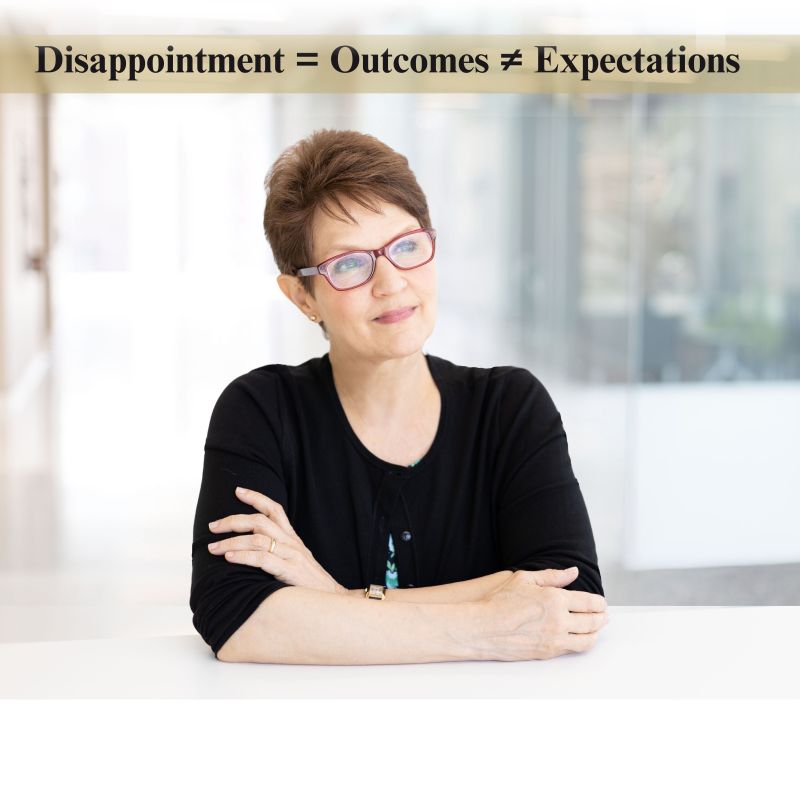
It’s not uncommon for an Executive Coaching client to come into my office disappointed by the outcomes of the team members, function, or company they lead.
I often share this simple “equation” with them:
DISAPPOINTMENT = OUTCOMES ≠ EXPECTATIONS
In other words, “disappointment occurs when the outcomes you achieve don’t align with the expectations you had.”
When asked to assess how this happened, leaders frequently point fingers at others, whether it’s their direct reports, peers, or superiors. However, I believe all three elements of this equation fall under the leader’s responsibility. Let’s break it down:
1️⃣ Expectations: Were your expectations crystal clear from the start? Did everyone share the same vision of what success looked like at the end of the task? Did you ensure that your goals and expectations were repeated back to you, confirming that everyone understood what was expected?
2️⃣ Outcomes: As a leader, if the outcomes are not as expected, it’s key not to blame others. Instead, explore how your leadership could have influenced different outcomes. Treat it as a learning experience.
3️⃣ Disappointment: Disappointment is a choice in how you interpret a situation. You can choose to react with frustration, anger, irritation, or annoyance, or you can opt for curiosity, seeing such situations as opportunities for growth, learning, and improving your current systems and procedures.
Often, we think we’re not in control of the outcomes, believing they are the responsibility of others. However, I believe that each element of this important equation is within our control, including the emotions we choose in response to outcomes resulting from poorly clarified expectations.
Once a client embraces this approach, they come back to me and share that it has led to much more productive team discussions – and ultimately better outcomes in the future.
As a leader, everything is always working out for you and your team’s greatest growth and development.
What do YOU think? What disappointment have you experienced or are you experiencing right now, and how you might use this equation to turn that around?


0 Comments